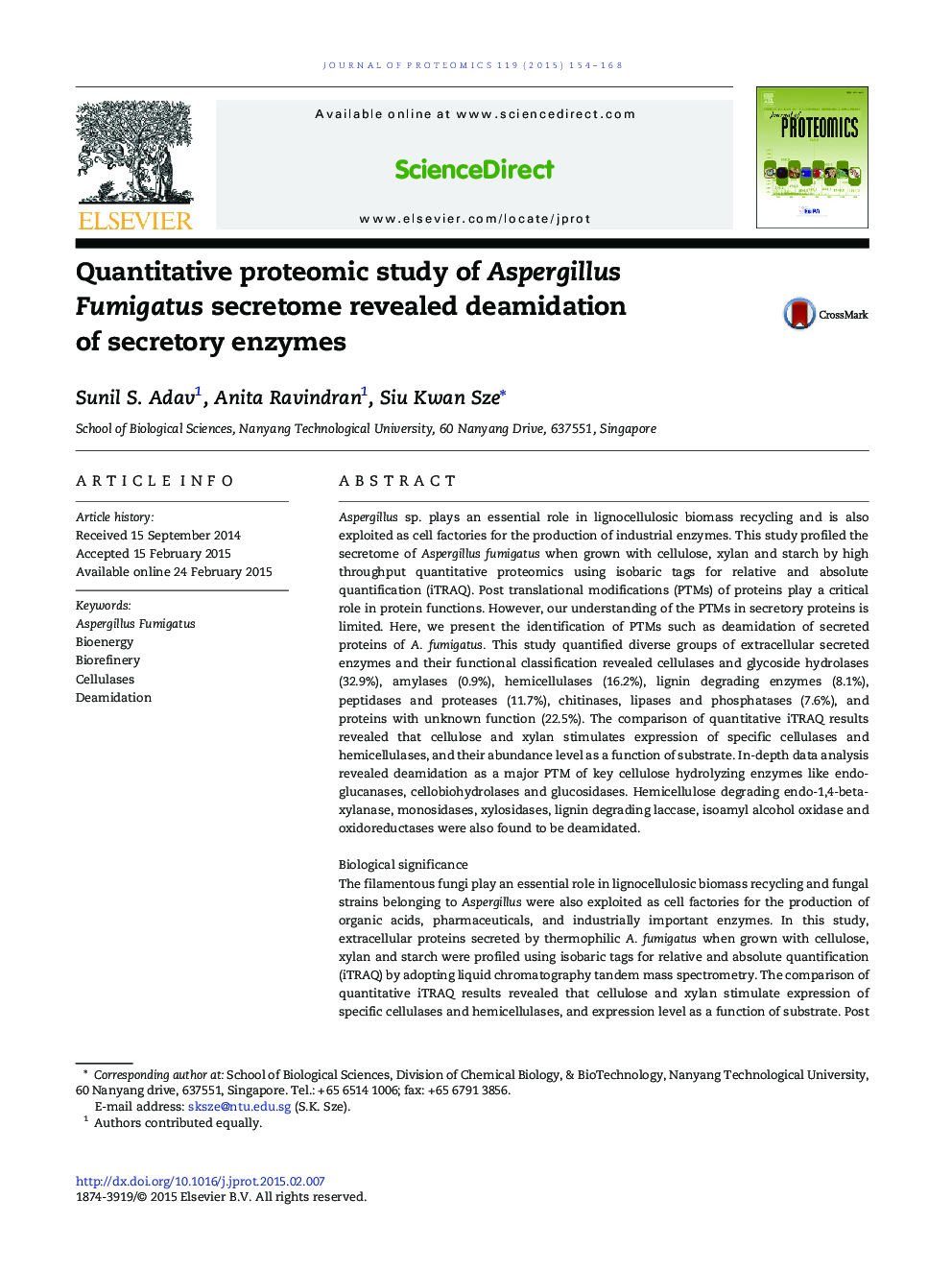| Article ID | Journal | Published Year | Pages | File Type |
|---|---|---|---|---|
| 1225374 | Journal of Proteomics | 2015 | 15 Pages |
•Lignocellulolytic enzymes by A. fumigatus were reported.•iTRAQ-based proteomic approach was applied for quantitative profiling of enzymes.•The study revealed deamidation of key lignocellulolytic enzymes.•The study revealed substrate specific stimulation of lignocellulolytic enzyme expression.•Expression level of enzymes was found as a function of substrate.
Aspergillus sp. plays an essential role in lignocellulosic biomass recycling and is also exploited as cell factories for the production of industrial enzymes. This study profiled the secretome of Aspergillus fumigatus when grown with cellulose, xylan and starch by high throughput quantitative proteomics using isobaric tags for relative and absolute quantification (iTRAQ). Post translational modifications (PTMs) of proteins play a critical role in protein functions. However, our understanding of the PTMs in secretory proteins is limited. Here, we present the identification of PTMs such as deamidation of secreted proteins of A. fumigatus. This study quantified diverse groups of extracellular secreted enzymes and their functional classification revealed cellulases and glycoside hydrolases (32.9%), amylases (0.9%), hemicellulases (16.2%), lignin degrading enzymes (8.1%), peptidases and proteases (11.7%), chitinases, lipases and phosphatases (7.6%), and proteins with unknown function (22.5%). The comparison of quantitative iTRAQ results revealed that cellulose and xylan stimulates expression of specific cellulases and hemicellulases, and their abundance level as a function of substrate. In-depth data analysis revealed deamidation as a major PTM of key cellulose hydrolyzing enzymes like endoglucanases, cellobiohydrolases and glucosidases. Hemicellulose degrading endo-1,4-beta-xylanase, monosidases, xylosidases, lignin degrading laccase, isoamyl alcohol oxidase and oxidoreductases were also found to be deamidated.Biological significanceThe filamentous fungi play an essential role in lignocellulosic biomass recycling and fungal strains belonging to Aspergillus were also exploited as cell factories for the production of organic acids, pharmaceuticals, and industrially important enzymes. In this study, extracellular proteins secreted by thermophilic A. fumigatus when grown with cellulose, xylan and starch were profiled using isobaric tags for relative and absolute quantification (iTRAQ) by adopting liquid chromatography tandem mass spectrometry. The comparison of quantitative iTRAQ results revealed that cellulose and xylan stimulate expression of specific cellulases and hemicellulases, and expression level as a function of substrate. Post translational modifications revealed deamidation of key cellulases including endoglucanases, cellobiohydrolases and glucosidases; and hemicellulases and lignin degrading enzymes. The knowledge on deamidated enzymes along with specific sites of modifications could be crucial information for further functional studies of these enzymes of A. fumigatus.
Graphical abstractFigure optionsDownload full-size imageDownload high-quality image (102 K)Download as PowerPoint slide
